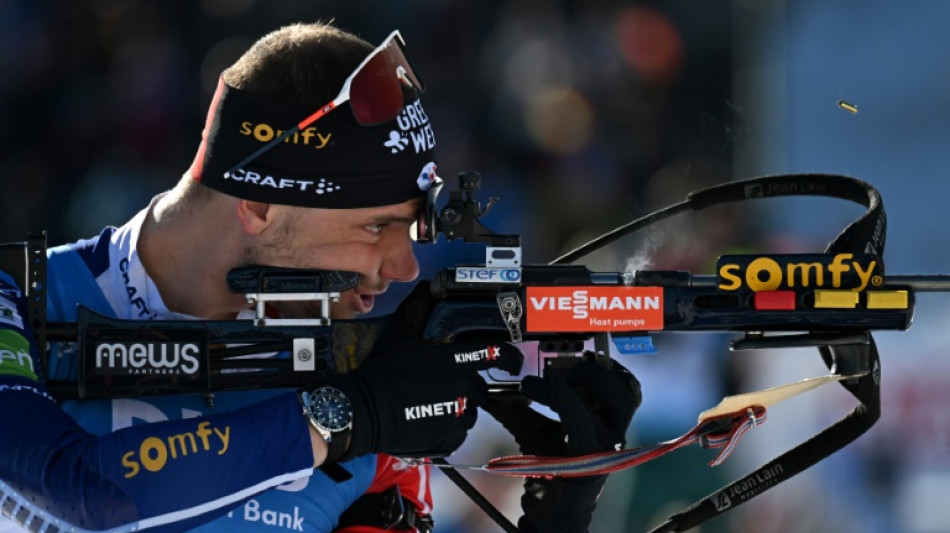

French biathlon star unhappy coaches blamed his depression for bad season
French Olympic biathlon medallist Emilien Jacquelin responded with irritation on Saturday after two national team coaches gave his depression as one of the reasons they were quitting.
"To say that someone is depressed or ill is the responsibility of a doctor. Announcing it publicly without the person's consent betrays medical confidentiality," wrote Jacquelin in the first of a series of tweets.
"Depression is an important and difficult subject, and using it to explain a lack of performance is clumsy."
The French men's team has struggled this season. When coaches Vincent Vittoz and Patrick Favre announced on Friday that they were quitting the team the one reason they gave was Jacquelin's depression.
Quentin Fillon Maillet is the best placed Frenchman at ninth in the World Cup standings. Jacquelin, a former champion and twice an Olympic silver medallist, ended his season in February, saying he had an "empty tank".
Coaches Vittoz and Favre cited both skiers as they blamed the "failure of our two leaders" before going on to say Jacquelin was "an athlete depressed for a year and a half, that we have supported".
"We did more than was possible," Vittoz said.
"We put all our energy, maybe too much at times, maybe we tried too hard to get him back on track." Vittoz said.
"Maybe we weren't the right answers either, but we stuck with him as much as we could."
In response, Jacquelin said he accepted that "it's probably clumsiness due to too many emotions but the subject is too important not to talk about it".
"This topic affects men and women," he wrote. "And it is a disservice to those who suffer from it to point the finger and make assumption about a failing athlete."
When, Jacquelin, the world champion in pursuit in 2020 and 2021, ended his season after the World Championships in Oberhof, Germany, he talked of a lack of physical and mental freshness".
"I'm not going to tell you everything that's going on in my head, it will scare you!" he said at the time.
"At some point, you have to ask yourself the right questions. Is it better to compete for the sake of competing? Is it not better to rest to come back to my real level and play at the front?"
O.L.Jiminez--ESF




